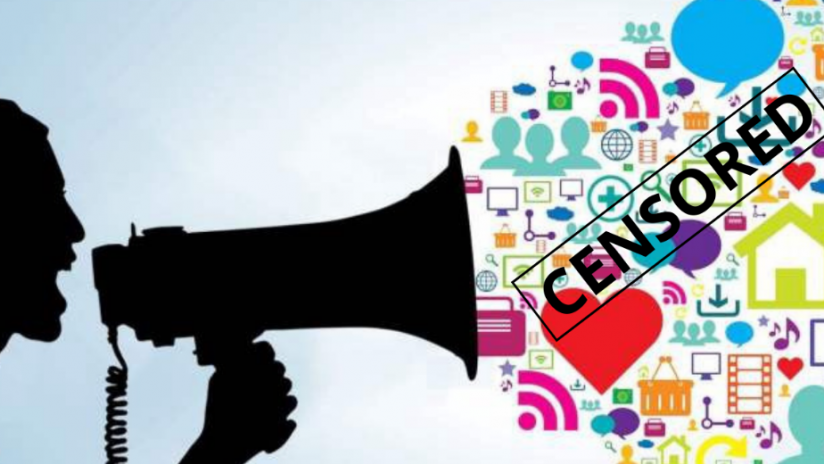A research group of graduates of the Young Human Rights Defenders trainings of the Institute for Democratic Initiatives (IDI) has prepared a policy paper on the situation of freedom of expression in Azerbaijan, especially on social networks.
The purpose of the policy paper is to study the situation of freedom of expression in Azerbaijan, especially on social networks, to describe the norms governing freedom of expression in national legislation, to show the nature of the facts of interference with freedom of expression, to reflect the approach of the European Court of Human Rights (ECtHR) to freedom of expression, and to analyze the findings of the study and make a final recommendation.
the Constitution, the Law on Information, Informatization and Protection of Information, the Code of Administrative Offenses, the Criminal Code, and other relevant legislative norms were reviewed and analyzed in the section of "the analysis of the legislation”.
Articles 47 and 50 of the Constitution of the Republic of Azerbaijan and a number of ratified national and international documents also protect freedom of expression. In these documents, the number of legitimate reasons for interfering with freedom of expression is limited, and the European Court of Human Rights requires that the interference must be both necessary in a democratic society and proportional to the violation of the law.
In terms of the activity of social media, there are a number of problematic points in national legislation. One of them is Chapter 3-1 of the Law of the Republic of Azerbaijan on "Information, Informatization and Protection of Information”, which is entitled "Internet Information Resources”, and the concepts included in the legislation in this chapter. For example, the term "public threat" is open to a wide field of application as an ambiguous concept in law. For this reason, this article is widely used and does not comply with one of the three main criteria for the quality of the law - the principle of foreseeability.
One of the biggest problems in the legislation is the existence of criminal liability for defamation and its widespread application, and sometimes even the activists and users of social media who express their thoughts openly are punished by imprisonment. In Resolution No. 1577 (2007), the Parliamentary Assembly of the Council of Europe called on States Parties to abolish prison sentences for defamation.
It was also repeatedly emphasized in the cases recognized as a violation of Article 10 of the Convention adopted by the European Court of Human Rights against Azerbaijan.
Several articles of the Criminal Code criminalize defamation. One of them is an article that protects the honor and dignity of the President. This article contradicts the principle that statesmen, public and political figures, including leaders, should be more tolerant of criticism, as repeatedly stated in the decisions of the ECtHR.
Looking at the application part of the legislation, it is observed that administrative legislation is often used to suppress freedom of expression. For example, Article 388-1 of the Code of Administrative Offenses is widely applied in court practice against political activists. It is also important to mention Article 211 of the Code of Administrative Offenses (violation of anti-epidemic regime, sanitary-hygienic and quarantine regimes), especially during a pandemic, when talking about restrictions on freedom of expression. Criticism of measures taken by the state during the quarantine period has been sanctioned under this article.
Decisions on the proportionality of penalties are among the main violations found by the ECtHR in many cases against Azerbaijan. Such that in its decisions, the ECtHR found that local courts chose the most severe sanctions, especially in defamation cases, which did not take into account the factors contributing to the public debate and the role of the individual in public life.
The policy paper examines the facts of interference with social networks due to shares and calls in 2020. In order to collect the facts, media monitoring was conducted and the victims got interviewed. The study revealed that activists who criticized coronavirus measures and journalists who shared people's criticism about the decisions on pandemics and the application of measures on social media were subjected to illegal and disproportionate interference. They were summoned to police stations or brought to administrative responsibility.
During this period, several activists were prosecuted under Articles 147 and 148 of the Criminal Code. This shows that criminal liability for defamation is widely used in Azerbaijan, and journalists, bloggers, social network activists, and others who express themselves are easily punished by imprisonment.
In addition to imprisonment as a punishment mechanism, there are cases of forced isolation as mentally ill and dismissal from job. During the study period, an activist was locked up in a psychiatric hospital for a video he shared on social media, and two other activists were fired for their political activities and posts.
The policy paper concludes that freedom of expression on social networks is restricted in Azerbaijan. Not only activists expressing their views but also journalists covering other people's problems have been subjected to illegal interference. These restrictions have been based on both legislation and practice.
The policy paper finally includes recommendations. Recommendations include the decriminalization of defamation, reviewing the restrictive provisions of the Law on Information, Informatization and Protection of Information and bringing it into line with the Constitution and the European Convention on Human Rights (ECHR), the inadmissibility of abuse of Articles 211, 388-1, and 535 of the Code of Administrative Offenses (CAO) and Article 139-1 of the Criminal Code (CrC), the police’s not using their powers as a means of political pressure, local courts’ taking into account factors such as the subject matter of public interest, the person's public role, and the consequences of sharing while balancing the right to respect for private life with freedom of expression, at the same time, the necessity for local courts to refrain from imposing the most severe sanctions, especially if the opinion or sharing is not a hate speech, etc.
